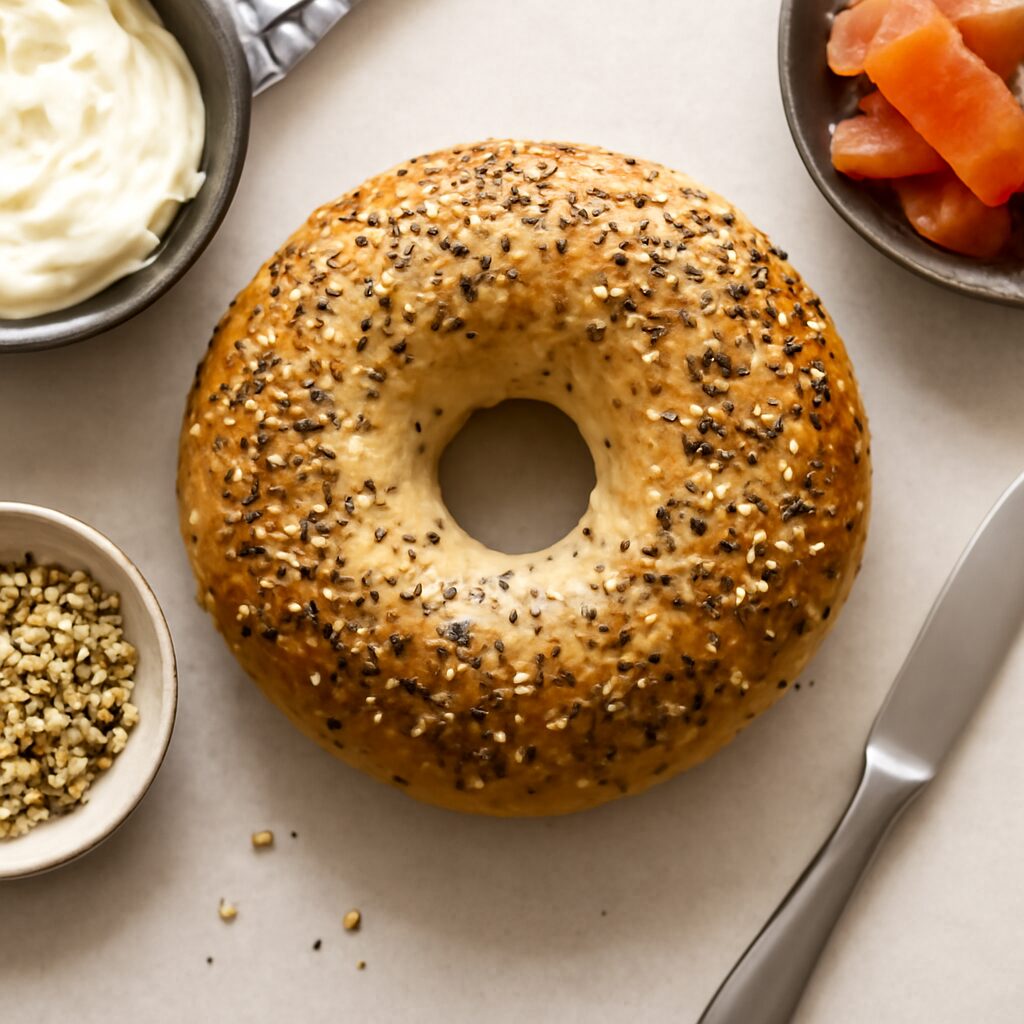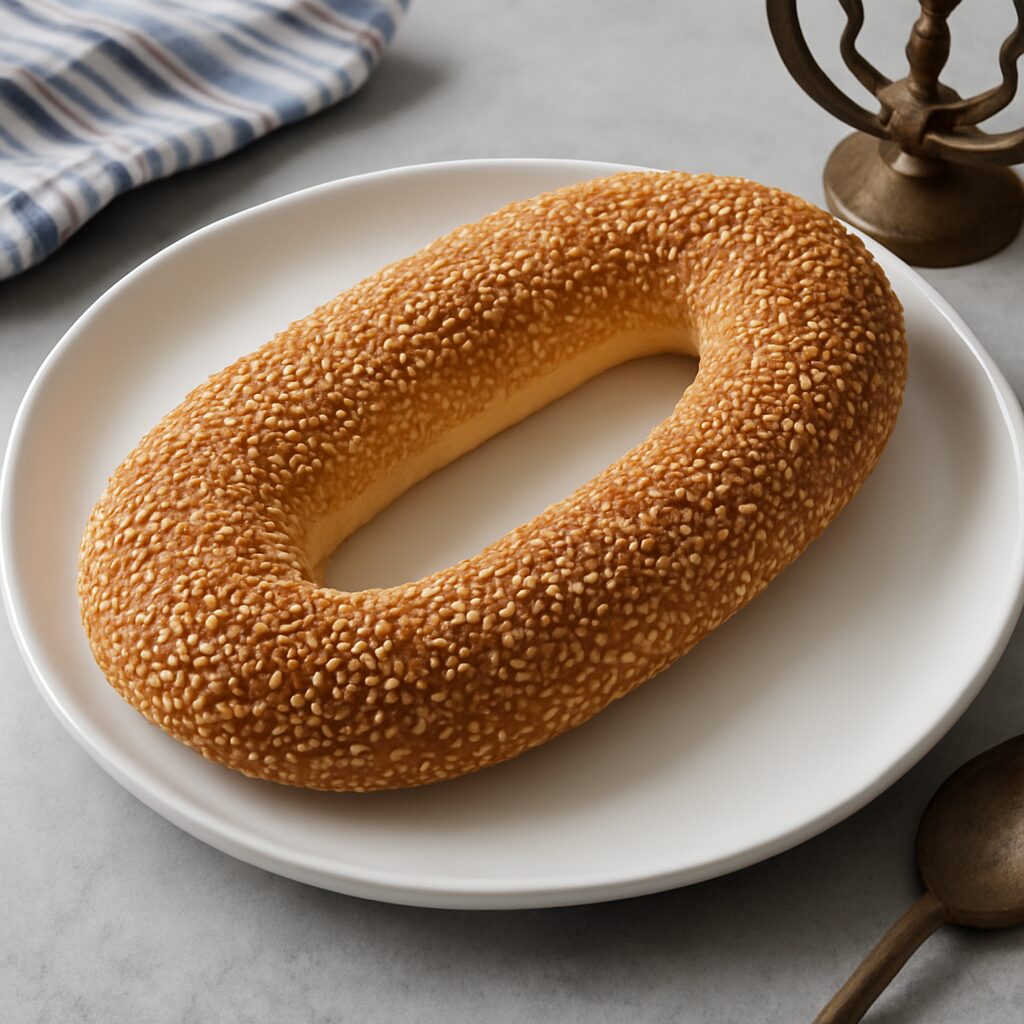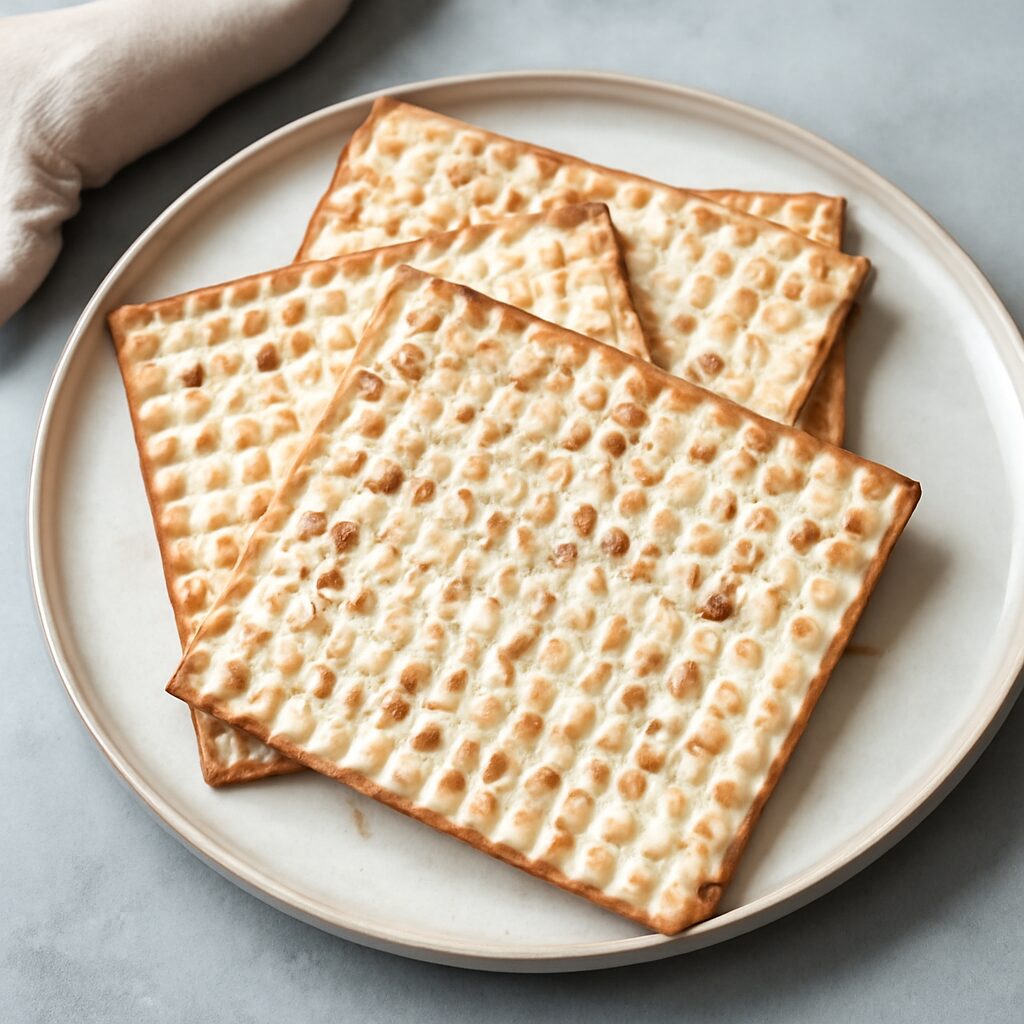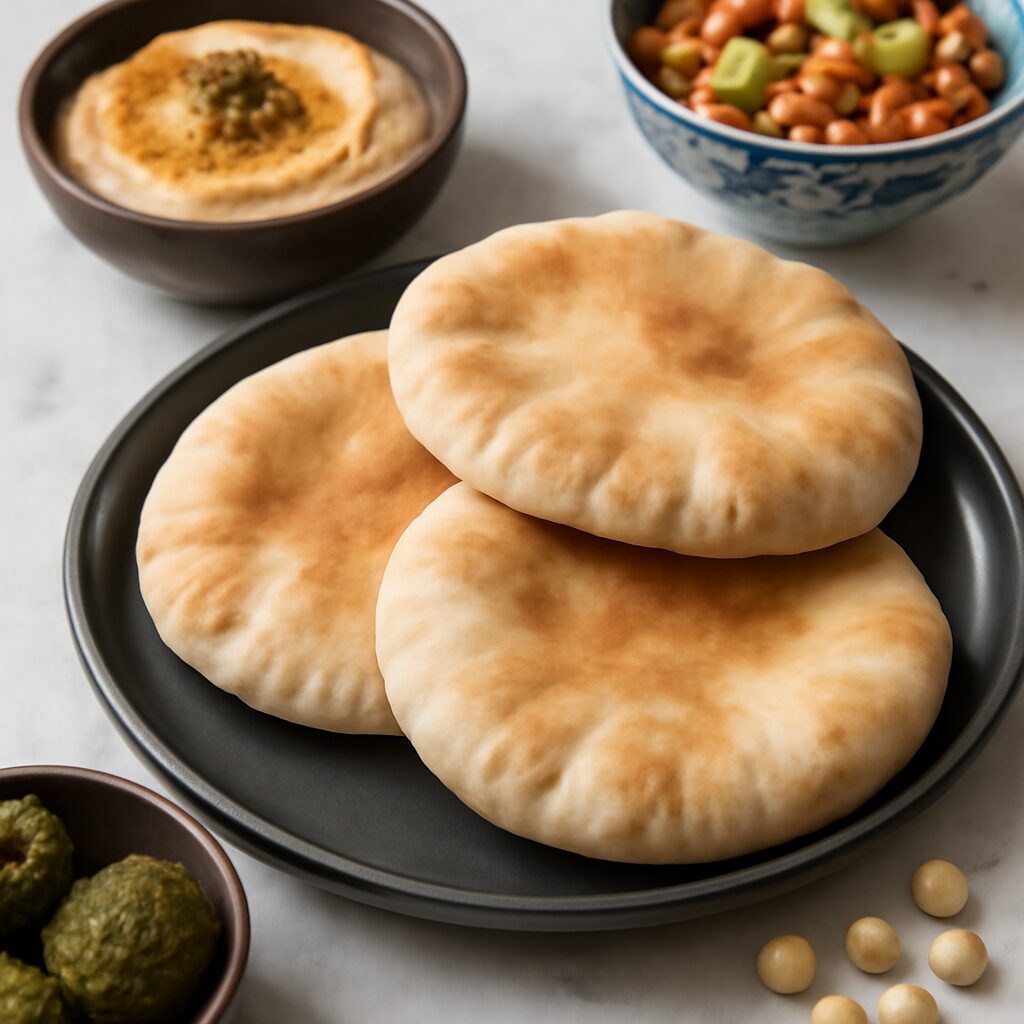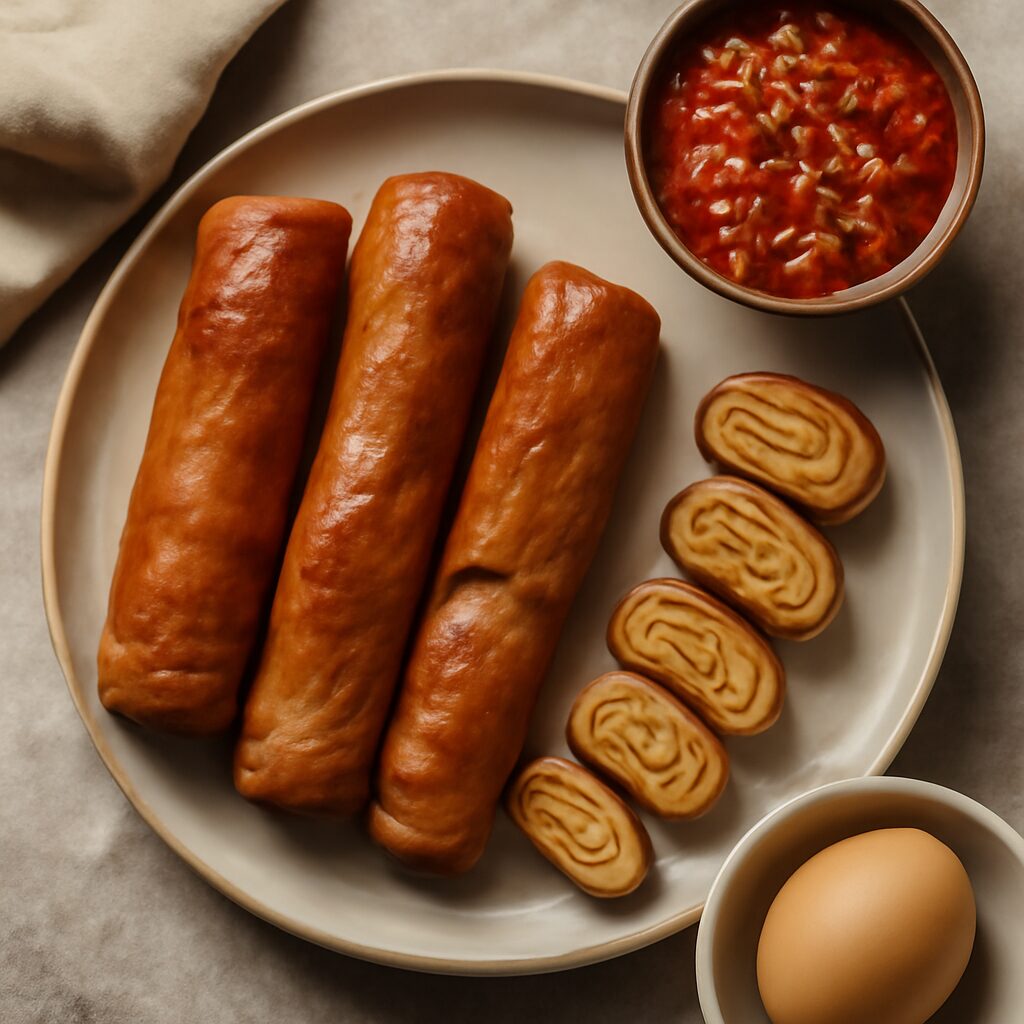
Jachnun is a traditional Yemenite Jewish bread known for its rich, flaky layers and slow cooking process. Typically prepared overnight, it is often served on Shabbat mornings with grated tomato, hard-boiled eggs, and spicy skhug. Its unique texture and buttery flavor make it a distinctive part of Jewish culinary traditions.
Making Jachnun:
1.
Traditions and Heritage of Jachnun
Jachnun
{solution}
Frequently Asked Questions
What is Jachnun?
Jachnun is a traditional Yemenite Jewish pastry made from rolled dough that is baked overnight at a low temperature, resulting in a flaky, buttery texture. It's typically served on Shabbat mornings.
How do you eat Jachnun?
Jachnun is traditionally served warm with grated tomato, schug (spicy Yemenite condiment), and hard-boiled eggs. It can also be dipped in sugar or honey for a sweeter taste.
Why is Jachnun eaten on Shabbat?
Jachnun is eaten on Shabbat because its long, slow cooking process (usually 8-12 hours) aligns perfectly with Jewish Sabbath laws that prohibit cooking. It can be prepared before Shabbat begins and left to bake overnight.
What's the difference between Jachnun and Malawach?
While both are Yemenite Jewish pastries, Jachnun is rolled very thin and baked slowly overnight, resulting in dense, layered sheets. Malawach is thicker, pan-fried, and has a flakier, more bread-like texture.
Can you make Jachnun without an oven?
Traditionally no - Jachnun requires long, slow baking in an oven. However, some modern adaptations use slow cookers or thermal cookers, but the texture may differ from the original.

